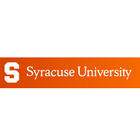- News and articles
- Find usIDP AustraliaIDP BahrainIDP BangladeshIDP CambodiaIDP CanadaIDP ChinaIDP EgyptIDP GhanaIDP Hong KongIDP IndiaIDP IndonesiaIDP IranIDP JordanIDP KenyaIDP KoreaIDP KuwaitIDP LebanonIDP MalaysiaIDP MauritiusIDP Middle EastIDP NepalIDP New ZealandIDP NigeriaIDP OmanIDP PakistanIDP PhilippinesIDP Saudi ArabiaIDP SingaporeIDP Sri LankaIDP Taiwan, ChinaIDP ThailandIDP TurkeyIDP UAEIDP VietnamIDP Corporate
- Social
- English
- Where we operate
- Courses
- Scholarships
- IELTS
- About IDP
- Student Essentials
- News and articles
- Find us
- Find us
- Find nearest IDP offices
- IDP Australia
- IDP Bahrain
- IDP Bangladesh
- IDP Cambodia
- IDP Canada
- IDP China
- IDP Egypt
- IDP Ghana
- IDP Hong Kong
- IDP India
- IDP Indonesia
- IDP Iran
- IDP Jordan
- IDP Kenya
- IDP Korea
- IDP Kuwait
- IDP Lebanon
- IDP Malaysia
- IDP Mauritius
- IDP Middle East
- IDP Nepal
- IDP New Zealand
- IDP Nigeria
- IDP Oman
- IDP Pakistan
- IDP Philippines
- IDP Saudi Arabia
- IDP Singapore
- IDP Sri Lanka
- IDP Taiwan, China
- IDP Thailand
- IDP Turkey
- IDP UAE
- IDP Vietnam
- IDP Corporate
- Social
- Language Switcher
- IDP Education /
- Colleges and Universities /
- United States /
- Syracuse University /
- Bachelor of Fine Arts in St...


Location
United States
Qualification
Bachelor Degree
Fees
USD63710
(2025)
Duration
8 Semester(s)
Next intake
25 August 2025
Entry Score
6.5
IELTSCourse info
Focusing on the practice and production of contemporary art this degree affords you the opportunity to pursue intensive coursework in traditional modes of art making such as ceramics, jewelry and metalsmithing, painting, printmaking, and sculpture while exploring more contemporary approaches such as installation, performance art, public art, and social practices.
Students will have the opportunity to choose to concentrate within one of the traditional media intensives or pursue an interdisciplinary practice that incorporates various mediums, methods, and approaches guided by mentorship programs and extensive advising. With an emphasis on professional practices, emphasizing the skills and abilities to develop and maintain a sustainable artistic practice, this degree aims to build on Syracuse's rich legacy of educating the innovative artists and cultural practitioners of the future.
Our ceramics intensive helps you become a professional ceramist. We encourage you to explore several directions: pottery, sculpture, tile mosaics, and other areas as you focus on the specialty that interests you most.
Early studio courses focus on methods of hand building, wheel throwing, and mold work, as well as basic glaze chemistry and application. You also learn to use decorative techniques, kiln firing, and studio maintenance. As you become more advanced, you will use traditional and experimental techniques for production pieces and individual works of art. At this level, you will mix your own glazes, clays, and slips and fire your own kilns.
Across all studios, our overriding objective is to cultivate and enrich curiosities. We ask you to become comfortable with the uncertainties of risk while exercising the freedom of exploring what you dont know, embracing the what if quotient. We want you to become an innovator and practitioner of change in your respective studio while being cognizant ofand a willing advocate oftradition. Teaching to the unapologetically functional vessel through to conceptually framed inquires, the faculty encourages an open dialogue with other disciplines. This has been the underlying strength of our program through much of its 110-year history.
- Scholarships
- Internships
Entry requirements for Syracuse University
Application Deadline
The application deadline isn't available Speak to an IDP counsellor for more detailed information
Further information
If you aren't eligible for the above entry requirements, you might ant to explore pathway options at Syracuse University. If you want to find out more, speak to our counsellors.
THE World Ranking
401st / 1250
THE World RankingWhat our students think
We’ve haven’t received any reviews for this institution yet.
Recommended for you
- THE World Ranking:58
- Bachelor Degree
- Providence , United States
- Next intake:06/2025
- Entry Score: IELTS 8.0
- USD71700 (2025)
- Bachelor Degree
- Malibu , United States
- Next intake:08/2025
- Entry Score: IELTS 6.5
- USD69130 (2025)
- Bachelor Degree
- Malibu , United States
- Next intake:08/2025
- Entry Score: IELTS 6.5
- USD69130 (2025)
- Bachelor Degree
- Malibu , United States
- Next intake:08/2025
- Entry Score: IELTS 6.5
- USD69130 (2025)
- Bachelor Degree
- Malibu , United States
- Next intake:08/2025
- Entry Score: IELTS 6.5
- USD69130 (2025)
- Bachelor Degree
- Malibu , United States
- Next intake:08/2025
- Entry Score: IELTS 6.5
- USD69130 (2025)
- Bachelor Degree
- Malibu , United States
- Next intake:08/2025
- Entry Score: IELTS 6.5
- USD69130 (2025)
- Bachelor Degree
- Malibu , United States
- Next intake:08/2025
- Entry Score: IELTS 6.5
- USD69130 (2025)
Your action plan
Step 1
Shortlist your courses
Choose the best three courses you’re most likely to pursue.
Step 2
Check your eligibility
Get an instant in-principle offer for courses with the IDP FastLane tag.
Step 3
Apply through IDP Live
Fill out the form once and use it to apply to multiple courses.
How does IDP FastLane work?
With the FastLane 'Offer in Principle', you'll know in minutes if you'll be accepted!
Select an institution and course
Create your academic profile
Submit your application for an 'Offer in Principle'
Your chosen institution(s) will send you a decision in minutes!
Get ready to apply with an expert counsellor




